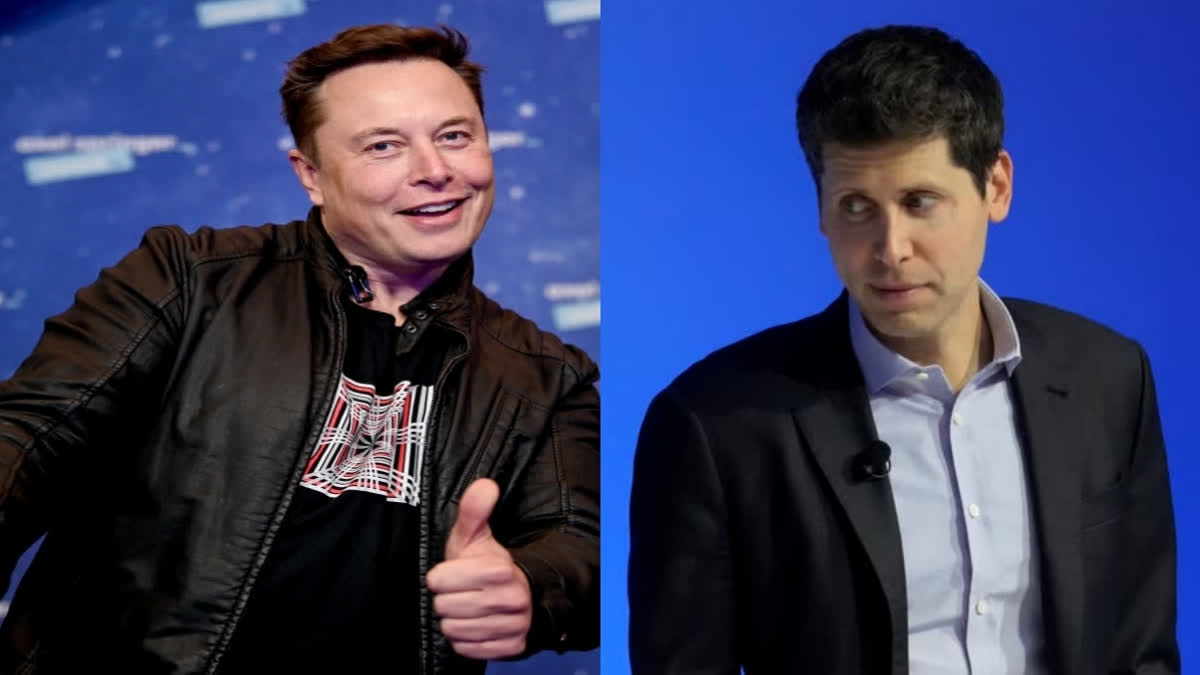New Delhi:India is not in competition with OpenAI's Sam Altman or xAI owner Elon Musk in the field of artificial intelligence (AI) but aims to build AI use cases to transform the lives of its citizens and curb user harm, Minister of State for Electronics and IT Rajeev Chandrasekhar said on Wednesday.
Speaking at the Global Technology Summit organised by the Ministry of External Affairs and Carnegie India, the minister said the government is preparing a comprehensive AI strategy to create real use cases as it works with several countries to develop a buffer around AI.
He emphasised that the main goal of the government is not to compete with the likes of Altman or Musk or to seek accolades such as the Nobel Prize, but rather to bring about change in people and lives through practical AI applications. "AI will play a very important role in agriculture, healthcare, security, language translation and inclusion," the minister said. According to Chandrasekhar, the world is aligning with India's stand to ensure safety and trust regarding AI.
A global summit on India AI will be held in January 2024 and the focus will be AI-related talent, computing, chips, large language models and foundation models. AI is the biggest and most impactful invention in recent times and it can transform healthcare, agriculture, governance, language translation and inclusion, he added.
Discussing India's AI strategy, the minister said, "We are fully invested in AI, committed to its real-life applications. Similar to our approach in Semiconductors, India is launching its own AI initiatives, not for grandstanding but to address practical challenges. Our Prime Minister sees technology as a transformative force, especially in healthcare, education, agriculture, security, and inclusion through language translation. Our focus is on impacting real people's lives rather than competing with high-profile figures like Elon Musk or Sam Altman."
Addressing challenges, the minister acknowledged, "We are tackling AI's issues, particularly in social media and internet toxicity. Legal accountability is crucial, and platforms, AI or not, should be held responsible for harms committed in cyberspace. This approach differs from the safe harbour concept."
Shifting to India's Semiconductor endeavours, the minister noted, "After years of neglect, we've made significant strides in the semiconductor sector. Our vibrant design ecosystem now generates IP and devices. Despite global talent shortages, we've initiated a program to train 85,000 engineers for the fabrication industry. Collaborating with the industry, we've redesigned the curriculum to meet the demands of this critical sector."
Highlighting India's potential as a semiconductor market, the minister asserted, "India aims to become a $120 billion market for semiconductors. With geopolitical advantages and growing demand in electronics manufacturing, we aspire to compete globally in design, research, and talent, distinguishing ourselves from traditional hubs like Taiwan and Korea."
More on Artificial Intelligence-
- Explained: ChatGPT maker OpenAI CEO Sam Altman's rollercoaster ride from departure to return, amidst leadership shakeup
- 'With advancement of technology and AI, money laundering has become a real threat', SC
- Amazon lays off hundreds in its Alexa division as it plows resources into AI
- Elon Musk launches AI chatbot 'Grok', says working better than ChatGPT
- Elon Musk calls AI "one of most disruptive forces in history", discusses risks with Rishi Sunak
